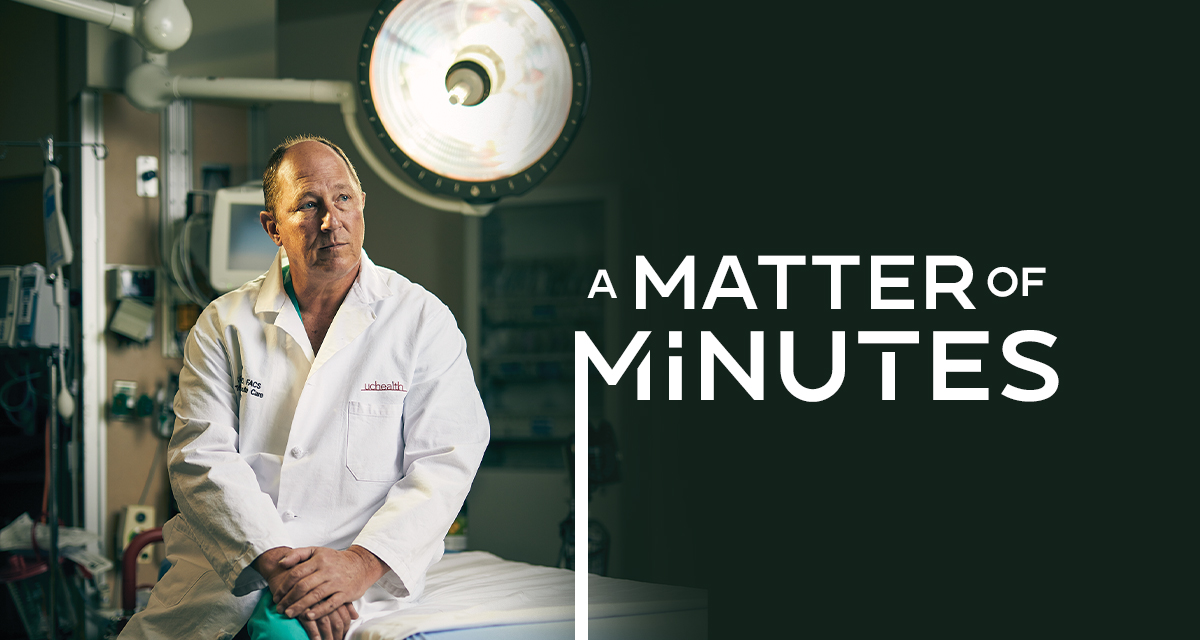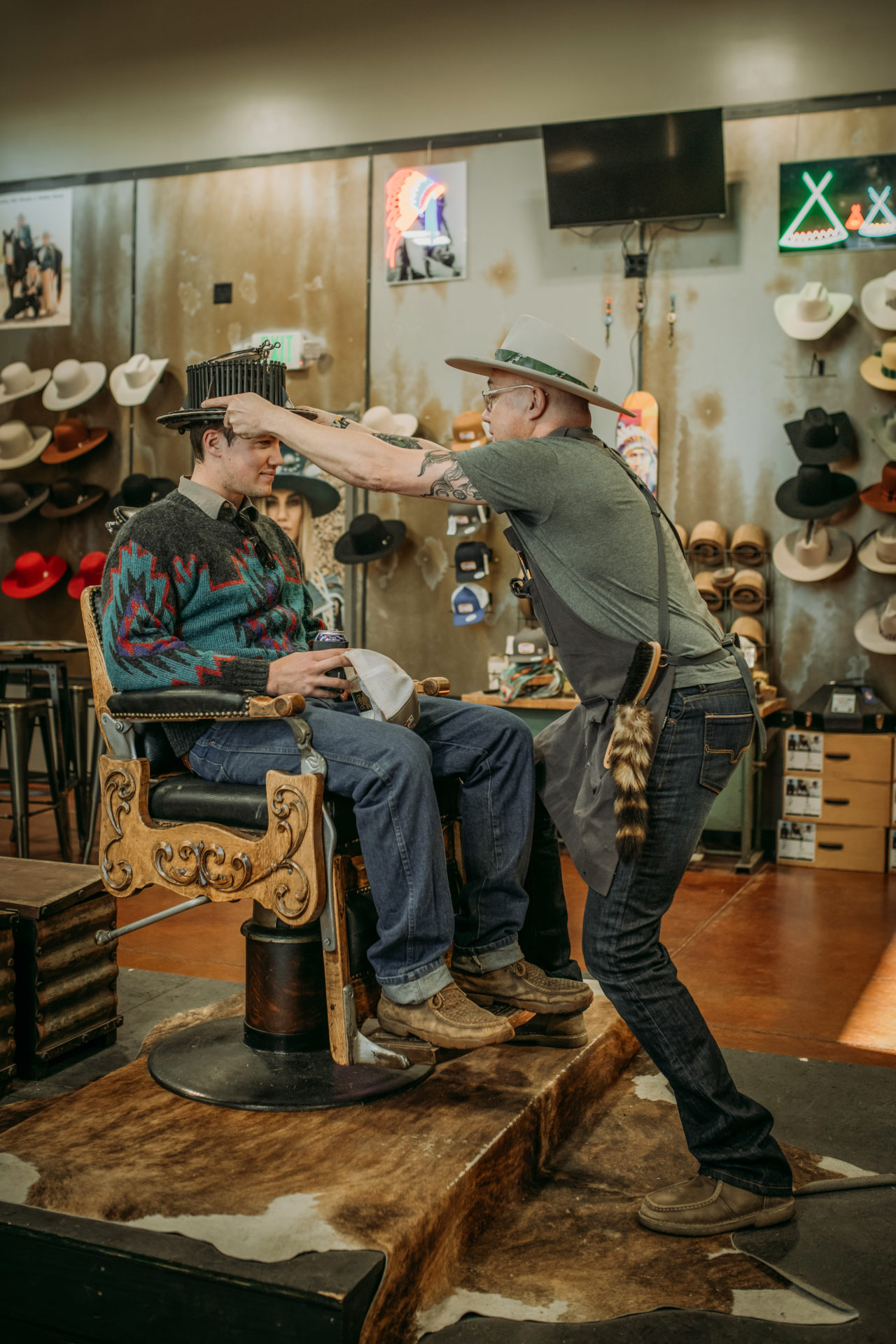– Medical Center of the Rockies’ Level 1 Trauma Ranking Brings Highest Quality Trauma Care Close to Home –
By Emily Kemme
Late one February night in 2021, 17-year-old Hudson Kane was heading home to Wellington from a friend’s house in Fort Collins when the music went off, everything went black and then there was silence.
He’d stopped at McDonald’s to grab a bite and was headed north on the frontage road when his car veered off the road, hit a cement culvert and flipped end-over-end. He was half-ejected from the vehicle. The impact caused Hudson to have a stroke and cardiac arrest. Time was ticking.
Within 10 minutes, a high school student driving past stopped to help, discovered Hudson hanging partly out of the car and called 9-1-1. First responders performed 17 minutes of CPR at the scene and in the ambulance.
Thirty-five minutes later, Hudson’s mother, Tawni, got a call from UCHealth Medical Center of the Rockies (MCR) telling her to get to the hospital quickly to say goodbye.
But Hudson did have a chance, in part because MCR was acting as a Level 1 Trauma Center—the highest classification for adult trauma care—and he was transported there instead of a Denver hospital. That classification carries several advantages, and MCR has worked hard to achieve it. It also saved Hudson’s life.
National Association of EMS Physicians guidelines recommend a maximum of 20 minutes of on-scene resuscitation efforts before determining a patient is dead. Because the nearest designated Level 1 Trauma Center was in metro Denver, resuscitation efforts wouldn’t have continued. But because the ambulance could head to MCR, Hudson is alive today.
Eighteen months later, Hudson says he’s happy there were no goodbyes said that night.
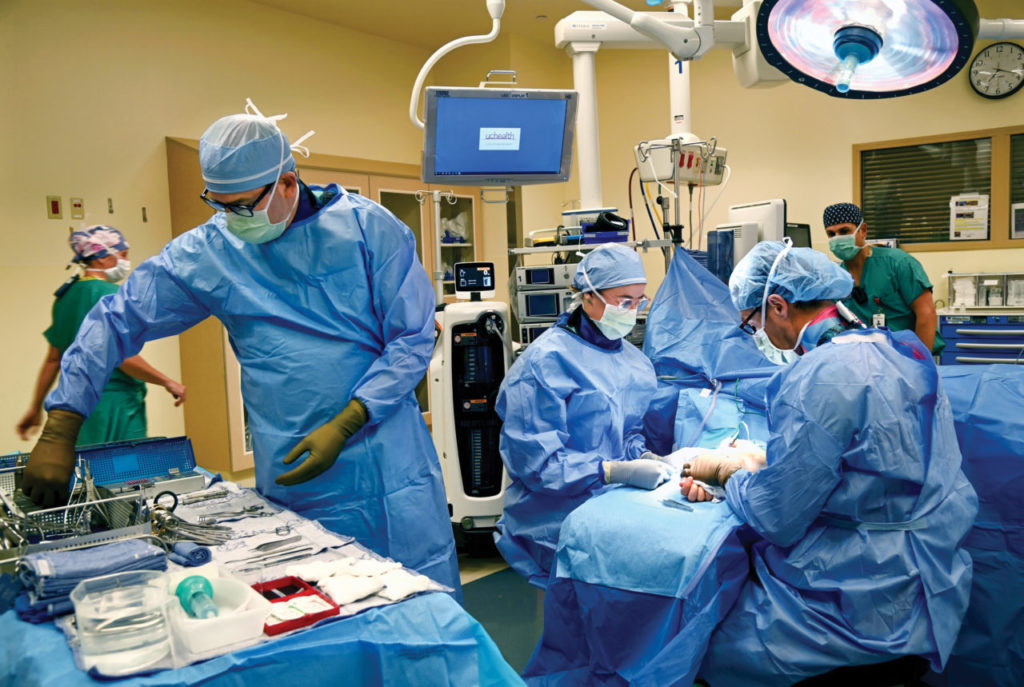
Dr. Mike Rusnak (right), a board-certified orthopedic surgeon who specializes in orthopedic trauma and fractures at Orthopaedic & Spine Center of the Rockies, is one of the many sub-specialists called upon to help care for trauma patients at UCHealth Medical Center of the Rockies. Here, he is assisted by registered nurse Nate Rodger (left) and physician assistant Kaitlin Regan (middle). Photo by Sonya Doctorian, UCHealth.
The road to Level 1 designation
Kevin Unger, Medical Center of the Rockies’ president and CEO and Dr. Chris Cribari, a trauma surgeon at MCR, say the Level 1 designation was finalized in July 2022, after 20 years building physician and support teams.
Hundreds of people—administrators like Rulon Stacy and Unger who shared a vision—and medical professionals made it happen.
“Physicians want to refer to hospitals and providers they’re familiar with and they know their patients are going to get the highest level of care. Demonstrating high quality outcomes from patient satisfaction, clinical satisfaction and safety experiences is what let us apply to be the Level 1 designation,” Unger says.
Cribari says it was important to pursue the designation because MCR was meeting all the criteria. The state’s designation allows the hospital to provide the highest level of care for motor vehicle accidents, stroke patients, cardiac events, farming accidents and more, Unger says. MCR is the only hospital in Northern Colorado with the designation.
Achieving the designation requires that the facility have round-the-clock coverage by trauma surgeons and specialists in neurosurgery, anesthesiology, orthopedics and others.
Additionally, a facility must meet benchmarks in education, research and treat a minimum number of severely injured patients every year.
Unger finds people like Chris Cribari incredibly remarkable.
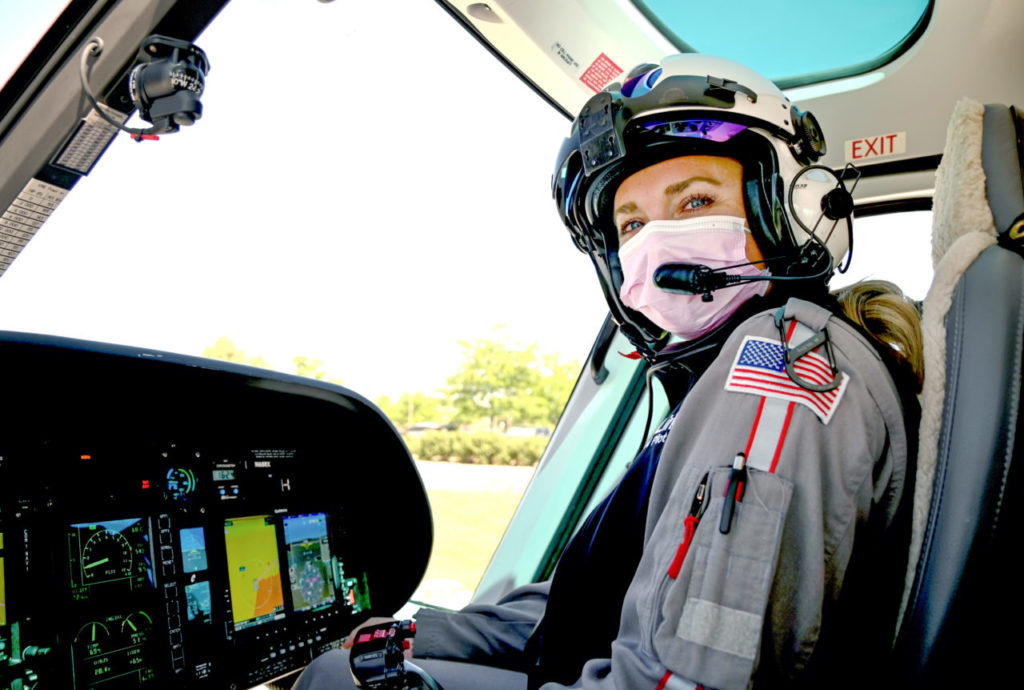
Samantha Poirier, a pilot for the UCHealth Lifeline medical helicopter service, is an integral part of the Level 1 Trauma Center and its ability to serve Northern Colorado. Photo by
Sonya Doctorian, UCHealth.
“They’re there to take care of who-knows-what [that] gets wheeled in, walks or arrives by helicopter through the doors. Trauma is a team sport; it’s a group of people who are ready to be there whenever our patients need them,” he says.
Cribari notes that patient care hasn’t changed with the designation. What has changed is UCHealth’s ability to treat the most severe cases without going to Denver.
“It’s an opportunity for patients to receive the highest level of care in their own community,” he says.
The designation also continues to enhance patient services by bringing in top physicians from all over the country.
When the state trauma system legislation passed in 1996, Poudre Valley Hospital had become a Level 2 Trauma Center, Cribari says. The trauma center was moved to MCR 15 years ago, remaining at Level 2 status with a goal to move up to Level 1 when the region needed it.
“Our region has exploded in population,” Cribari says. “Just as we’ve outgrown our roads, schools and water, we’ve outgrown our healthcare.”
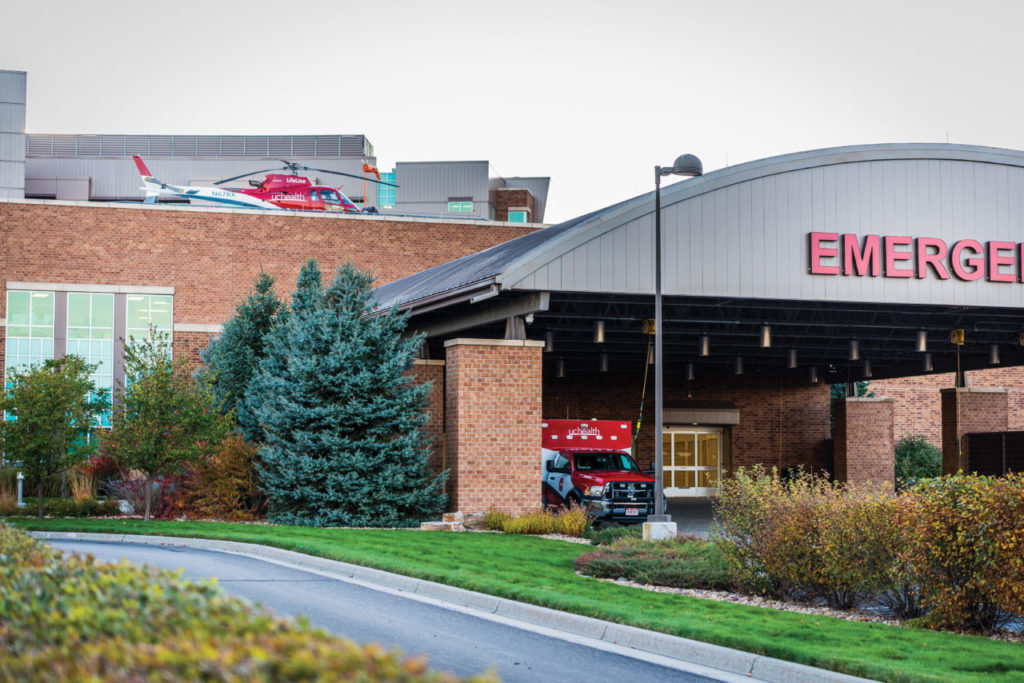
UCHealth Medical Center of the Rockies, Loveland.
Photo courtesy of UCHealth.
Although MCR had been acting as a Level 1 Trauma Center for close to seven years, it reached volumes set by the Colorado Department of Public Health and Environment to qualify for the designation in 2021. That number—320 seriously injured patients in a year—made the designation happen. In 2021, MCR provided care to 1,853 patients who met the trauma guidelines, more than double the 880 trauma patients the hospital cared for when it opened in 2007.
The program also had to develop an educational program for senior surgical residents. In partnership with Colorado State University and the University of Colorado School of Medicine, family medicine residents, physician assistant students and nurse practitioners during their surgical fellowship rotate on the trauma service too.
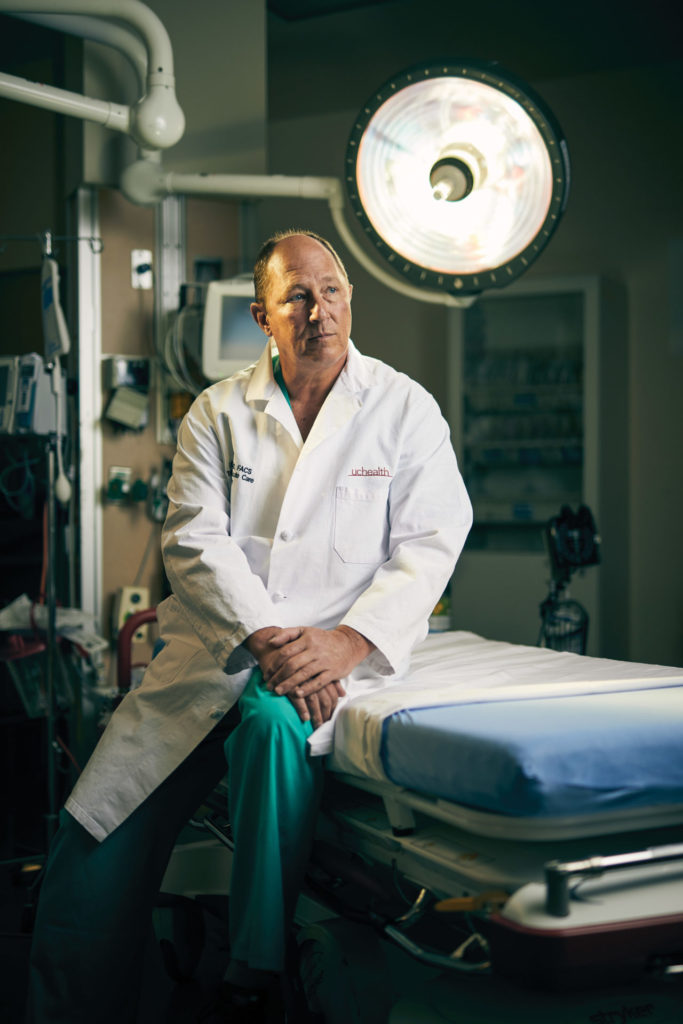
Chris Cribari, M.D., UCHealth Medical Center of the Rockies
Photo by John Robson Photography.
“Every morning at 7 a.m., 365 days a year, we meet in our surgical library to review treatment status for patients on the service. Those meetings are often attended by up to 25 learners,” Cribari says.
The last step for Level 1 designation is surgical research. Dr. Julie Dunn, UCHealth medical director for surgical research, works with basic scientists from CSU, plus UCHealth Metro (Denver) and South (Colorado Springs) on trial studies. They are required to publish 10 papers every three years in peer-reviewed journals; last year alone there were 10, with many UCHealth providers presenting programs on national podiums.
A network of support for healing patients
UCHealth provides support systems for families, including a network of hotels, houses and RV hookups in the hospital’s parking lots.
Because Hudson’s hospital stay happened during COVID-19, only one family member at a time was allowed in his room. Tawni says she didn’t leave his side, sometimes spending 36 hours straight watching him. But on day 13, the hospital made an exception and allowed Hudson’s sister, Ciara, to visit for 20 minutes.
“Less than 10 minutes after Ciara arrived, Hudson woke up,” Tawni says.
He spent 60 days at MCR, recovering from facial fractures, a lacerated kidney and a brain injury that leaves him struggling with short-term memory.
Today, after weeks in a long-term acute care hospital and then at Craig Hospital in Denver, Hudson says he’s close to being able to walk by himself, after initially being told by doctors he wouldn’t ever again.
The next step is working to improve his short-term memory so he can go to college. He had been taking classes at Front Range Community College his senior year of high school; the college is working with Craig toward a goal to start school this winter.
Thanks to MCR, he is also looking forward to celebrating many more birthdays with his family.
______________________________________________________________________________
Emily Kemme is a Colorado freelance writer.

